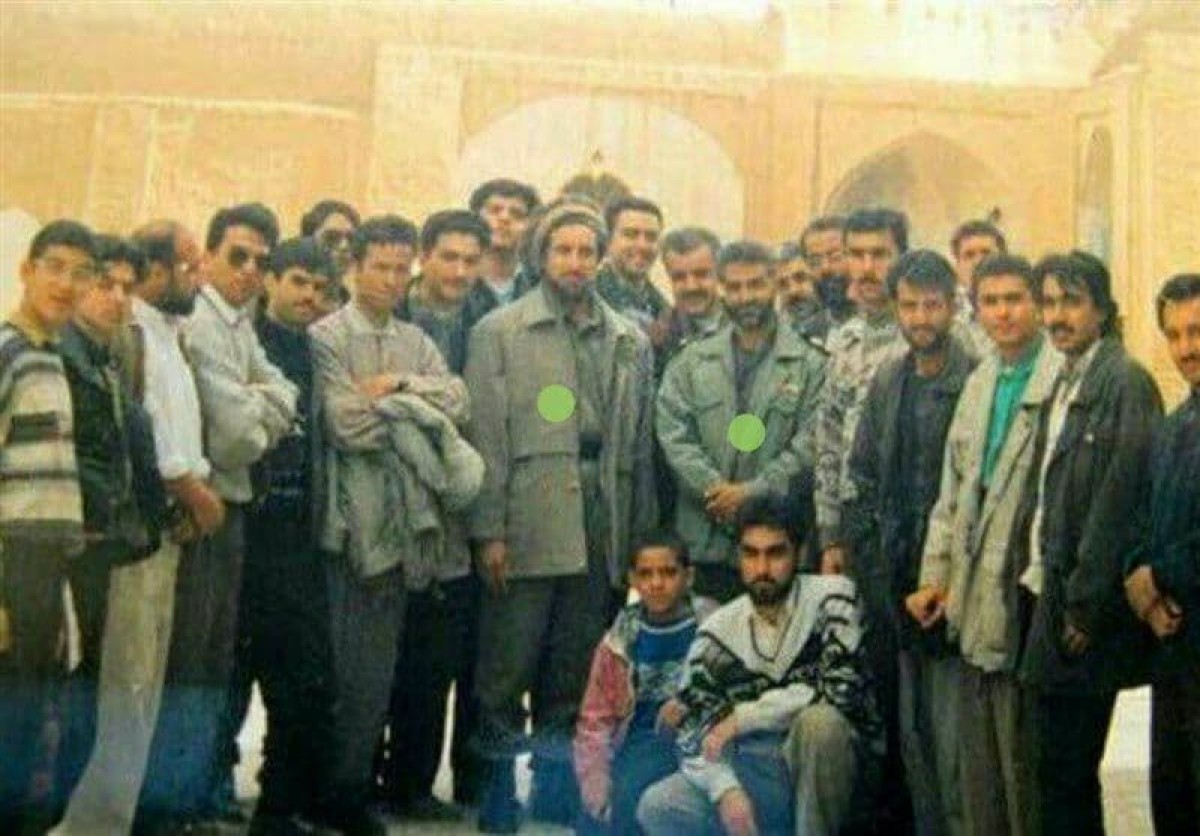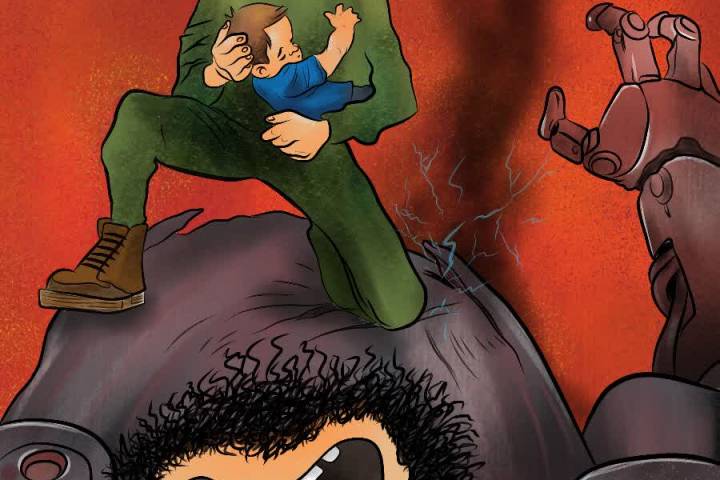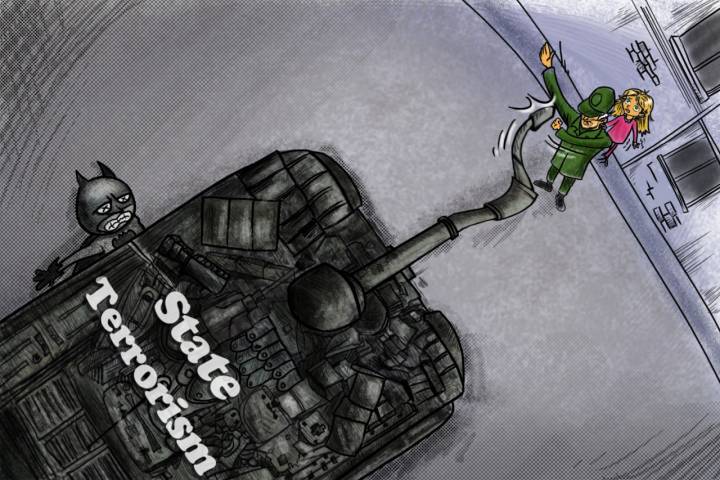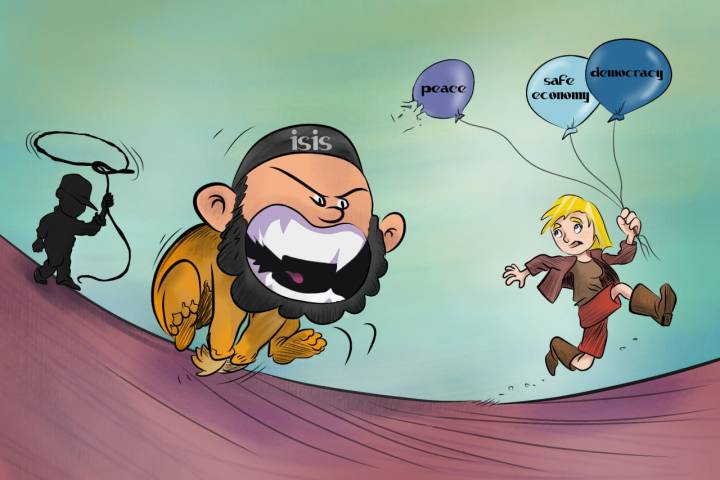The hero of the Age: General Qassem Soleimani and the battle for Afghanistan’s liberty
Since its inception in 1979, the Islamic Republic of Iran, regardless of geographical borders, has always been a great supporter of oppressed masses. One of the key measures adopted to strengthen resistance movements across the globe was the formation of the Islamic Revolutionary Guard Corps (IRGC)’s Quds Force.
Afghanistan has always been important for Iran due to its linguistic, ethnic and religious propinquities. Cognizant of the utmost significance of helping the underdog nation of Afghanistan, Haj Qassem Soleimani, and the late commander of Iran’s Quds Force, pledged to offer military support and financial aids for the Afghani Muslim nation.
One of the brightest episodes of Iran’s support for the oppressed Afghani Muslims was following the former Soviet Union’s invasion of Afghanistan in the early 1980s.
The first effective measure adopted by the Quds Force was the creation of a Shiite military faction composed of eight different parties which later formed an umbrella coalition, called the National Islamic Unity Party of Afghanistan.
But as the majority of the Afghan population are adhering Sunni Islam, Gen. Soleimani was successful in developing a strong relationship with key Afghan Sunni leaders like Ahmad Shah Massoud and Burhanuddin Rabbani.
Shortly after the toppling of the pro-Russian regime in Kabul; a deviant sect of zealots, the Taliban, established their tyrannical regime, wresting the control of %85 of Afghanistan’s territories and began to subjugate the Afghani nation and spread their heretical doctrines. Amid insidious whispers about accepting the Taliban’s repressive regime in order to prevent further bloodshed, it was Haj Qassem Soleimani who gave courage to the anti-Taliban resistance factions that were isolated in remote enclaves in northeastern Afghanistan.
In fact, Haj Qassem’s much-needed assistance for the anti-Taliban resistance movements marked a turning point in the contemporary history of Afghanistan.
Afghanistan’s liberation from the Taliban’s fanatical rule owes much to the efforts of General Soleimani and his other Iranian and Afghan comrades. After the end of Taliban rule and the rise of ISIS in the region, Gen. Soleimani also set up Fatemiyoun Division, which is made up of Afghan volunteers that have provided many services to the Islamic world, especially the people of Afghanistan.
0
Since its inception in 1979, the Islamic Republic of Iran, regardless of geographical borders, has always been a great supporter of oppressed masses. One of the key measures adopted to strengthen resistance movements across the globe was the formation of the Islamic Revolutionary Guard Corps (IRGC)’s Quds Force.
Afghanistan has always been important for Iran due to its linguistic, ethnic and religious propinquities. Cognizant of the utmost significance of helping the underdog nation of Afghanistan, Haj Qassem Soleimani, and the late commander of Iran’s Quds Force, pledged to offer military support and financial aids for the Afghani Muslim nation.
One of the brightest episodes of Iran’s support for the oppressed Afghani Muslims was following the former Soviet Union’s invasion of Afghanistan in the early 1980s.
The first effective measure adopted by the Quds Force was the creation of a Shiite military faction composed of eight different parties which later formed an umbrella coalition, called the National Islamic Unity Party of Afghanistan.
But as the majority of the Afghan population are adhering Sunni Islam, Gen. Soleimani was successful in developing a strong relationship with key Afghan Sunni leaders like Ahmad Shah Massoud and Burhanuddin Rabbani.
Shortly after the toppling of the pro-Russian regime in Kabul; a deviant sect of zealots, the Taliban, established their tyrannical regime, wresting the control of %85 of Afghanistan’s territories and began to subjugate the Afghani nation and spread their heretical doctrines. Amid insidious whispers about accepting the Taliban’s repressive regime in order to prevent further bloodshed, it was Haj Qassem Soleimani who gave courage to the anti-Taliban resistance factions that were isolated in remote enclaves in northeastern Afghanistan.
In fact, Haj Qassem’s much-needed assistance for the anti-Taliban resistance movements marked a turning point in the contemporary history of Afghanistan.
Afghanistan’s liberation from the Taliban’s fanatical rule owes much to the efforts of General Soleimani and his other Iranian and Afghan comrades. After the end of Taliban rule and the rise of ISIS in the region, Gen. Soleimani also set up Fatemiyoun Division, which is made up of Afghan volunteers that have provided many services to the Islamic world, especially the people of Afghanistan.
0
Abu Mahdi al-Mohandes
Abu Mahdi al-Mohandis
Abu Mahdi al-Muhandis
Afghanistan
anti-Taliban
commander
Fatemiyoun
Gen. Soleimani
general soleimani
General Soleimany
qasem soleimani
Haj Qasem soleimani
Hard revenge
hard revengre
history
IRAN
iranian
Iranian embassy
Iraq
Iraqi
Iraqi people
IRGC’s Quds
ISIS
Martyr Soleimani
military
Muslims
people
poster soleimani
Qasem Soleimani
Qassem soleimani
Quds Force
severe revenge
Soleimani
Soleymani
territories






Comment
Post a comment for this article